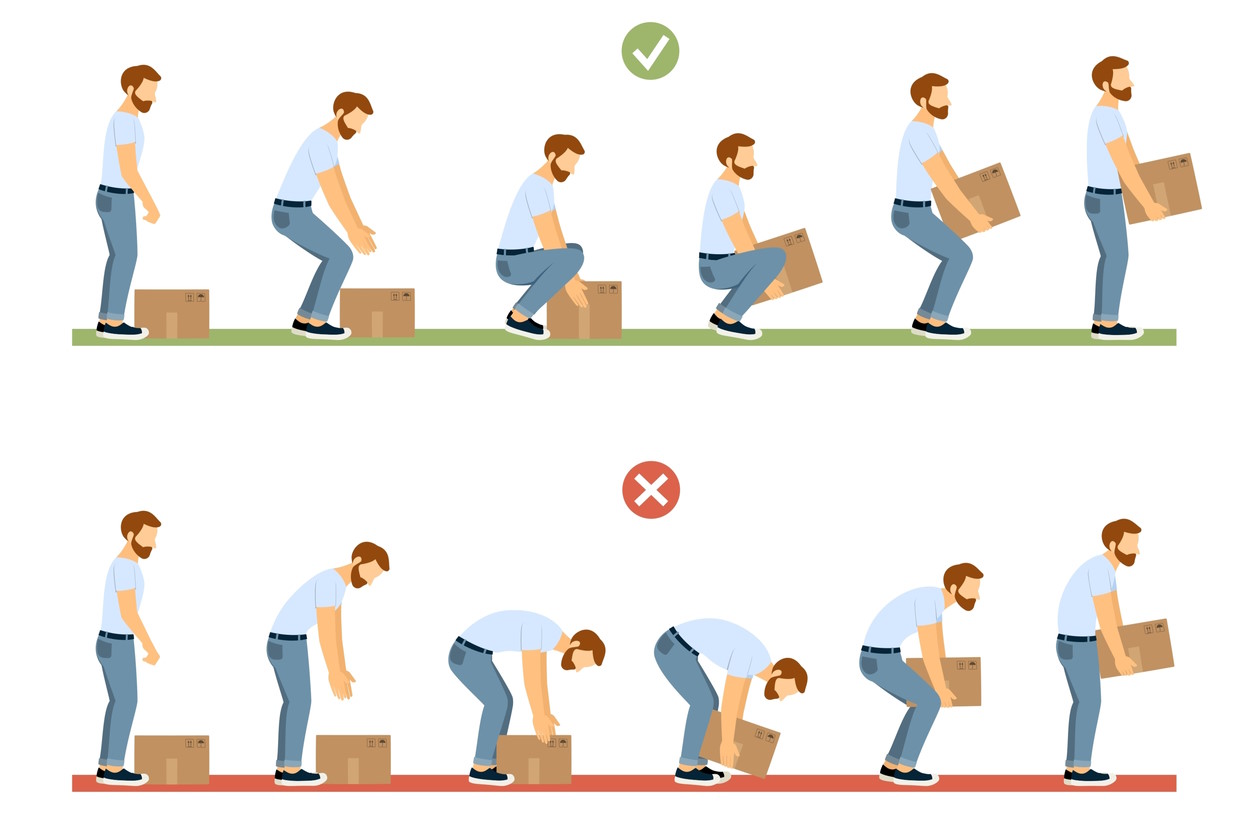Heavy Haul Trucking Companies in Texas: Navigating the Lone Star State’s Giants cars.truckstrend.com
Texas, a state synonymous with vast landscapes, booming industries, and a "go big or go home" attitude, is a critical hub for an often-overlooked but utterly essential industry: heavy haul trucking. Far beyond the scope of standard freight, heavy haul trucking involves the meticulous planning, specialized equipment, and expert execution required to transport oversized, overweight, or otherwise unconventional cargo. From massive oilfield machinery and wind turbine components to prefabricated building sections and colossal industrial equipment, these companies are the backbone of Texas’s economic engine, ensuring that critical infrastructure and vital industries can operate and expand.
In a state where everything is bigger, the need for specialized transportation is paramount. Heavy haul trucking companies in Texas don’t just move goods; they move progress, connecting critical components from manufacturers to construction sites, energy fields, and ports across the state and beyond. Understanding their role, capabilities, and the intricacies of their operations is key for anyone involved in large-scale projects, manufacturing, or industrial development within the Lone Star State.
Heavy Haul Trucking Companies in Texas: Navigating the Lone Star State’s Giants
What Defines Heavy Haul Trucking?
Heavy haul trucking is a highly specialized niche within the transportation industry, distinguished by the nature of the cargo it handles. Unlike general freight, which adheres to standard dimensions and weight limits, heavy haul (also known as oversized or over-dimensional transport) deals with loads that exceed these regulations. This can include:
- Overweight Loads: Cargo that weighs more than the legal limit for standard trucks, often requiring multi-axle trailers to distribute the weight.
- Over-dimensional Loads: Cargo that exceeds legal limits in terms of length, width, or height, necessitating specialized trailers like lowboys, removable gooseneck (RGN) trailers, or even modular hydraulic trailers.
- Specialized Cargo: Items that, while not strictly overweight or over-dimensional, require specific handling, temperature control, or security measures due to their value, fragility, or hazardous nature.
The inherent challenges of moving such massive cargo demand a unique blend of engineering expertise, logistical prowess, and an unwavering commitment to safety and regulatory compliance.

Why Texas is a Strategic Hub for Heavy Haul
Texas’s unique characteristics make it an unparalleled epicenter for heavy haul operations. Several factors contribute to its strategic importance:
- Energy Sector Dominance: Texas is the heart of the U.S. oil and gas industry, with vast oilfields and refineries. Moving drilling rigs, pipelines, pressure vessels, and other massive equipment is a constant necessity, driving demand for specialized transport.
- Manufacturing and Industrial Growth: The state boasts a robust manufacturing sector, producing everything from aerospace components to heavy machinery. These large-scale items frequently require heavy haul services for delivery to customers or other facilities.
- Infrastructure Development: With rapid population growth and expanding urban centers, Texas is continually investing in new roads, bridges, and commercial developments. Transporting oversized bridge beams, concrete sections, and construction machinery is integral to these projects.
- Renewable Energy Expansion: Texas is a leader in wind energy production, and the transportation of massive wind turbine blades, towers, and nacelles across vast distances relies heavily on specialized heavy haul capabilities.
- Geographic Advantage: Its central location in the U.S. and extensive highway network make Texas a gateway for heavy haul movements originating from or destined for other states and international borders.
- Major Ports: With deep-water ports like Houston, Galveston, and Corpus Christi, Texas facilitates the import and export of colossal equipment, often requiring heavy haul services for the "first and last mile" of transportation.


These factors collectively create a dynamic environment where heavy haul trucking companies are not just service providers but crucial partners in the state’s economic prosperity and industrial advancement.
Key Services Offered by Texas Heavy Haul Companies
Leading heavy haul trucking companies in Texas offer a comprehensive suite of services designed to manage complex transportation projects from inception to completion:
- Route Planning and Surveying: Meticulous analysis of routes to identify potential obstacles (low bridges, narrow roads, sharp turns, utility lines) and ensure the safe passage of oversized loads. This often involves physical surveys and advanced mapping technology.
- Permitting and Regulatory Compliance: Navigating the labyrinthine world of state, county, and city permits for oversized and overweight loads. This includes understanding specific regulations for different jurisdictions and securing all necessary approvals well in advance.
- Specialized Equipment Fleet: Access to a diverse range of trailers, including:
- Lowboy Trailers: Designed for hauling tall equipment by positioning the load low to the ground.
- Removable Gooseneck (RGN) Trailers: Allows the front of the trailer to detach, enabling equipment to be driven onto the deck.
- Multi-Axle Trailers: For distributing extremely heavy loads over more axles, minimizing pressure on roads.
- Hydraulic Modular Trailers: Highly configurable trailers that can be linked together to transport colossal, multi-hundred-ton loads.
- Flatbeds and Step Decks: For loads that are slightly over-dimensional but don’t require the extreme low clearance of a lowboy.
- Pilot Car and Escort Services: Providing certified escort vehicles (pilot cars) with trained drivers to accompany oversized loads, ensuring public safety, warning oncoming traffic, and managing traffic flow.
- Project Management: Comprehensive oversight of the entire transportation process, including scheduling, coordination with various stakeholders, risk assessment, and contingency planning.
- Rigging and Lifting Services: Many companies offer or partner with specialists for the loading and unloading of extremely heavy or awkward items, often utilizing cranes, gantry systems, or jack-and-slide methods.
- Transload Services: Facilitating the transfer of cargo between different modes of transport (e.g., from rail to truck, or from port to truck) for seamless multimodal solutions.
Choosing the Right Heavy Haul Company in Texas: Practical Advice
Selecting the appropriate heavy haul partner is paramount for the success and safety of your project. Here’s what to consider:
- Experience and Reputation: Look for companies with a proven track record specifically in Texas. Experience with the state’s unique regulations, road conditions, and industries (e.g., oil & gas, renewables) is invaluable. Check testimonials and industry references.
- Safety Record and Compliance: This is non-negotiable. Inquire about their safety protocols, driver training programs, and their CSA (Compliance, Safety, Accountability) scores. Ensure they are fully compliant with federal (DOT) and Texas state regulations.
- Insurance and Bonding: Verify they carry comprehensive insurance coverage (cargo, liability, property damage) adequate for the value and risk associated with your load. Ask for proof of insurance and discuss coverage limits.
- Equipment Fleet and Capabilities: Does the company have the specific trailers and ancillary equipment (e.g., winches, rigging gear) required for your load’s dimensions and weight? A diverse and well-maintained fleet indicates readiness for various challenges.
- Permitting Expertise: Confirm their proficiency in securing all necessary permits promptly and accurately. A company with established relationships with state and local permitting authorities can save significant time and prevent delays.
- Communication and Transparency: A reliable heavy haul partner will maintain clear, proactive communication throughout the process, providing updates and quickly addressing any issues that arise.
- Customer Service: Assess their responsiveness and willingness to understand the unique requirements of your project. A consultative approach is often a good sign.
- Cost vs. Value: While cost is a factor, prioritize value. The cheapest bid might lead to delays, damages, or regulatory issues that ultimately cost more. Look for a fair price that reflects their expertise, equipment, and comprehensive service.
Challenges in Texas Heavy Haul
Despite its advantages, heavy haul operations in Texas come with their own set of challenges:
- Permitting Complexities: Texas’s size means dealing with numerous county and city jurisdictions, each potentially having its own additional permit requirements on top of state permits. This can create a complex web of bureaucracy.
- Route Restrictions: Low overhead clearances (bridges, utility lines), weight-restricted bridges, narrow roads, and urban congestion can significantly complicate route planning.
- Weather Variability: Texas weather can be unpredictable, from severe thunderstorms and tornadoes to extreme heat, all of which can impact transport schedules and safety.
- Driver Shortages: Finding highly skilled, experienced heavy haul drivers who possess specialized licenses and training is a persistent challenge in the industry.
- Fuel Costs: The vast distances covered in Texas mean fuel costs are a significant operational expense, influencing pricing.
- Coordination: Managing multiple pilot cars, utility companies for line lifts, and law enforcement escorts requires intricate coordination.
Benefits of Partnering with a Texas Heavy Haul Specialist
Engaging a heavy haul trucking company with deep roots and expertise in Texas offers numerous advantages:
- Local Regulatory Knowledge: They are intimately familiar with Texas Department of Transportation (TxDOT) regulations, local ordinances, and the nuances of permitting processes across the state.
- Optimized Route Selection: Their local knowledge allows them to identify the most efficient and safest routes, avoiding potential bottlenecks or problematic infrastructure.
- Access to Specialized Equipment: They maintain fleets tailored to the specific demands of Texas industries, ensuring the right tools for the job.
- Risk Mitigation: Their experience minimizes the risk of accidents, delays, fines, or damage to your valuable cargo.
- Efficiency and Timeliness: By handling all logistical complexities, permits, and escorts, they ensure your load reaches its destination on schedule, preventing costly project delays.
- Peace of Mind: Entrusting your oversized cargo to experts allows you to focus on your core business, confident that your transportation needs are in capable hands.
Factors Affecting Heavy Haul Pricing in Texas
Providing a fixed price table for heavy haul services is impractical due to the highly customized nature of each shipment. Pricing is determined by a multitude of variables. Instead, here’s a table outlining the key factors that influence the cost of heavy haul trucking in Texas:
| Factor | Description |
|---|---|
| Dimensions (Length, Width, Height) | The larger the dimensions, the more specialized the trailer required (e.g., RGN, multi-axle, modular). Over-dimensional loads also trigger more stringent permitting, escort, and route survey requirements, significantly increasing cost. |
| Weight | Heavier loads necessitate more axles to distribute weight, potentially requiring hydraulic modular trailers for extreme weights. This impacts equipment cost, fuel consumption, and may require additional road permits or even bridge analysis. |
| Distance | The total mileage of the transport is a primary cost driver, influencing fuel consumption, driver wages, and equipment wear. Longer distances generally mean higher costs. |
| Origin & Destination | Accessibility of pickup and delivery sites. Remote locations, urban congestion, or sites with difficult access (e.g., unpaved roads, tight turns) can increase costs due to additional planning, specialized maneuvers, or the need for transloading. |
| Equipment Type Required | Different trailers have different operational costs. A standard flatbed is less expensive than a specialized 13-axle hydraulic modular trailer or a dual-lane transporter. |
| Number of Axles | Directly related to weight distribution. More axles mean higher equipment cost, maintenance, and potentially higher permit fees. |
| Permit Costs | State, county, and city permits vary widely in cost based on load dimensions, weight, and the specific jurisdictions traversed. Complex routes crossing multiple authorities will incur higher permit fees. |
| Escort/Pilot Car Needs | The number of pilot cars (front, rear, multiple) required by state regulations depends on load dimensions. Each pilot car adds a significant daily rate to the overall cost. Police escorts, when required, are also an additional expense. |
| Time of Year/Season | Demand fluctuations (e.g., peak construction season) can affect pricing. Winter weather in some regions or hurricane season in others might also add surcharges or cause delays. |
| Fuel Surcharges | Due to the high fuel consumption of heavy haul trucks, most companies apply a fuel surcharge that fluctuates with market fuel prices. |
| Additional Services | Costs for services like rigging, craning, jack-and-slide, utility line lifts, route surveys, specialized engineering plans, or customs brokerage will be added to the base transport fee. |
| Urgency/Lead Time | Expedited services often incur higher costs due to the need for immediate resource allocation, faster permit processing (if available), or overtime for drivers/staff. |
| Detention/Layover | If the truck or crew is held up at the loading or unloading site beyond agreed-upon free time, detention charges may apply. |
To get an accurate quote, it is essential to provide the heavy haul company with precise details of your cargo, including exact dimensions, weight, origin, destination, and any specific deadlines or site requirements.
Frequently Asked Questions (FAQ) about Heavy Haul Trucking in Texas
Q1: What constitutes a heavy haul load in Texas?
A1: In Texas, a load is generally considered oversized if it exceeds 8 feet 6 inches in width, 13 feet 6 inches in height, or 65 feet in length for a single unit. Weight limits vary by axle configuration but typically exceed 80,000 lbs gross vehicle weight for standard permits. Anything above these dimensions or weights requires special permits.
Q2: How long does it take to get heavy haul permits in Texas?
A2: Standard Texas oversized/overweight permits can often be obtained within 1-3 business days, provided all documentation is correct. However, complex loads, superloads, or those requiring special engineering analyses, bridge surveys, or multiple county/city permits can take weeks or even months to secure all necessary approvals.
Q3: Do I always need pilot cars for my heavy haul load in Texas?
A3: Not always, but frequently. Texas regulations mandate pilot cars based on specific dimensions. For example, loads over 10 feet wide, 75 feet long, or 14 feet 6 inches tall generally require at least one pilot car (front or rear). Loads exceeding certain dimensions (e.g., over 14 feet wide) often require two pilot cars (front and rear). Extremely large or complex loads may require additional escorts, including police escorts.
Q4: What kind of insurance should a heavy haul company have?
A4: A reputable heavy haul company should carry comprehensive insurance, including General Liability, Commercial Auto Liability, and most importantly, Cargo Insurance. It’s crucial to verify the limits of their cargo insurance to ensure it adequately covers the value of your specific load. Some companies also carry "all-risk" cargo insurance, which offers broader protection.
Q5: Can heavy haul companies transport internationally from Texas?
A5: Yes, many heavy haul companies in Texas have the capabilities and expertise to manage cross-border shipments to and from Mexico and Canada. This often involves additional customs brokerage, specialized permits for international travel, and coordination with border agencies. Texas’s strategic location makes it a key gateway for such operations.
Q6: How far in advance should I book a heavy haul service?
A6: For standard oversized loads, booking 1-2 weeks in advance is often sufficient. However, for extremely large, complex, or superload projects that require extensive planning, specialized equipment, multiple permits, and utility coordination, it’s advisable to book several weeks or even months in advance. Early booking allows for thorough route surveys, permit acquisition, and equipment scheduling, minimizing potential delays.
Conclusion
Heavy haul trucking companies in Texas are more than just transporters; they are highly specialized logistical partners essential to the state’s continued growth and industrial prowess. Navigating the complexities of oversized and overweight cargo requires a unique blend of engineering acumen, regulatory expertise, and an unwavering commitment to safety. By understanding the critical role these companies play, the services they offer, and the factors that define successful heavy haul operations, businesses can make informed decisions when entrusting their most valuable and challenging shipments to the giants of the road. In the vast expanse of the Lone Star State, these heavy haul specialists truly move mountains – or at least, everything that makes them.




